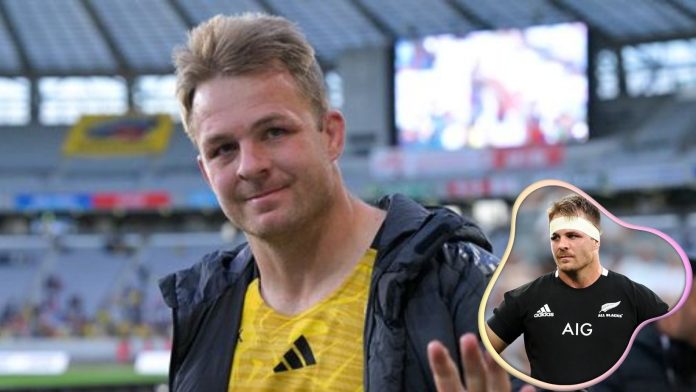- Sam Cane, a beloved figure in New Zealand rugby, is set to retire from international play at the end of the 2024 season.
- He has signed a three-year contract with Suntory Sungoliath in Japan, marking a new phase in his rugby career.
- Cane’s contributions to the All Blacks, including leading the team to victory in the 2015 World Cup, have left an indelible mark on the sport.
- His retirement signals the end of an era for the All Blacks, but his legacy will continue to inspire future players.
Newsypeople- Sam Cane, the esteemed captain of the New Zealand All Blacks, has announced his retirement from international rugby at the conclusion of the 2024 season. This decision marks the end of a remarkable 12-year career that has seen Cane rise to the pinnacle of the sport, leading his team with distinction and resilience.
Cane’s journey with the All Blacks began in 2012 when he made a memorable debut against Ireland, scoring two tries. His early promise was a precursor to a career filled with significant achievements, including playing a crucial role in New Zealand’s 2015 World Cup victory. Over the years, Cane has been a stalwart for the All Blacks, earning 95 caps and captaining the team in 27 of those matches. His leadership on the field has been characterized by a blend of tactical acumen and unyielding physicality, traits that have made him a respected figure in the rugby world.
Also Read: Bektemir Melikuziev Parents: Family Ethnicity, Origin And Nationality
However, Cane’s career has not been without its challenges. He has faced numerous injuries, the most severe being a broken neck in 2018, which threatened to end his career prematurely. Despite these setbacks, Cane’s determination and commitment to the sport saw him return to the field, continuing to lead the All Blacks with the same vigor and passion. His resilience in the face of adversity has been a source of inspiration for many, both within and outside the rugby community.
Cane’s tenure as captain has also seen its share of controversies and criticisms. The position of openside flanker, which he inherited from the legendary Richie McCaw, is one of great significance in New Zealand rugby. Following in McCaw’s footsteps was no easy task, and Cane has faced scrutiny from fans and critics alike. His form has been questioned at times, and his sending off in the 2023 World Cup final for head contact was a low point in his career. Despite these challenges, Cane has remained steadfast in his commitment to the team and the sport.
The decision to retire comes as Cane prepares to embark on a new chapter in his career. He has signed a three-year contract with Tokyo-based Suntory Sungoliath, a move that will see him continue playing rugby in Japan. This opportunity came at a crucial time for Cane, who has been contemplating his future and the need to provide for his family post-rugby. The contract with Suntory Sungoliath offers both financial security and a chance to experience a new rugby culture, something Cane and his family had to consider seriously.
Cane’s departure from the All Blacks also coincides with a period of transition for the team. New head coach Scott Robertson has indicated that he is exploring other options for the captaincy, with players like Scott Barrett and Ardie Savea emerging as potential candidates. Cane’s willingness to support the new captain and contribute to the team’s success, even from a non-playing role, underscores his dedication to the All Blacks and his understanding of the natural progression within the sport.

Reflecting on his career, Cane expressed immense gratitude for the opportunities and experiences he has had. “I’ve always thought that if I can play professional rugby for that length of time I’d be doing really well considering the position I play and the age that I started playing professionally,” Cane said. His humility and appreciation for the game are evident in his words, as he acknowledges the honor and privilege of wearing the captain’s armband and representing New Zealand on the international stage.
As Cane prepares to bid farewell to international rugby, his legacy as a player and leader will undoubtedly endure. His contributions to the All Blacks, both on and off the field, have left an indelible mark on the team and the sport. While his presence will be missed, the foundations he has helped build will continue to support the All Blacks as they navigate the future.



